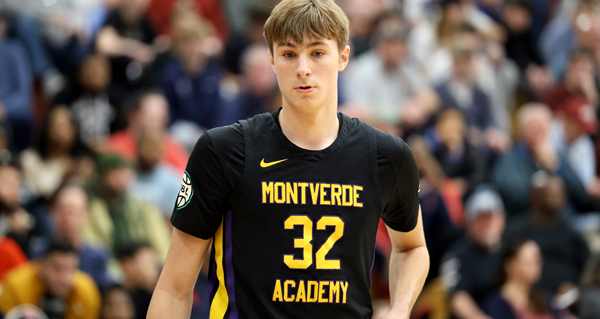It’s not totally clear, yet, what the Chicago Bulls are doing this offseason. After trading Alex Caruso for 21-year-old Josh Giddey, and drafting the raw livewire, high-upside wing Matas Buzelis, though, it looks like they’re investing more in a youth program. We won’t be sure until the fate of Zach LaVine and DeMar DeRozan is settled, which seems to be Chicago’s goal for the next few weeks. Should they move on from both, they’ll be joining a growing pool of intentional losers in the 24-25 season.
Such is the nature of the contemporary NBA. Tread water, drown on purpose (but not to death), and look for the perfect moment to swim to the shore and emerge from the water, taking the land on foot as an aspiring contender. Hopefully, complex new team-building restrictions will help you out, by handicapping other organizations. The Denver Nuggets and Golden State Warriors, champions in 2023 and 2022, respectively, can tell you all about that. Both are hurting from the new penalties incurred by teams that make the big and necessary financial commitments common at the league’s zenith.
The Boston Celtics will be there soon, too—having just given Jrue Holiday a big bag, they’ll owe Jayson Tatum one this summer as well. The road from the champagne room to the sobering, beguiling taxman’s office is brief and speedy, and it’s that way by design. Realizing this, the Minnesota Timberwolves and New York Knicks are both in a race to lock down a roster they can live with for a half-decade; both are going even more all-in than before, exploding their roster-building flexibility that will be taken away from them anyway. Optionality, they believe, is less important than the urgent task of becoming something before the NBA’s bureaucratic talons rip up their spreadsheets.
For everyone else—the Bulls, and the rest of the lottery teams—there’s the 2025 draft class, already a warzone of speculation and positioning. Draft picks are thrown around in trade offers (and actual trades) every day, but next time you read a report about those maneuvers, see whether they’re the 2025 variety or not. Because not all draft capital is made equal, and those picks are going at premium rates. This calculus, of course, is separate from that of determining which seasons of youngsters will become potent professionals. There’s still more gambling there than anyone tasked at figuring out such things is comfortable with.
It’s just that, in 2025, the car-salesmanship of it all is much more confident, which gives general managers and the owners who pay them more comfort. Put more simply: everyone wants Cooper Flagg. Watch footage of the 17-year-old Duke commit and you’ll understand why. It’s not just that he’s a strong, skilled, versatile wing with center size. There’s something else there, something even a charlatan who doesn’t watch the game could see. It’s a determined meanness of sorts, reminiscent of Kawhi Leonard at his best; it’s the way his body says you can’t have this on defense, and you know he’s right. If you are watching your favorite player try to score on Flagg, you might start thinking things like: what if a bear was as smart as me, and had opposable thumbs? That would be bad.
Again: it’s still a spin of the roulette, projecting his career as a pro. But drafting Flagg is like signing a mortgage for a house that actually has all the rooms, square footage, bathrooms, and outdoor space you want, and in your desired region. Your life might suck anyway, but for different, less predictable reasons. 2024’s class offered no such plots of land. You better know a lot of shrewd contractors, be in for some weird months, and have a lot of developmental ingenuity if you’re signing up for life with these guys. That stuff’s all integral to building a great NBA culture, anyway, but it’s still smart to look for shortcuts.
All of these current conditions are ideal for the chattering class, to which we all belong in the social media era. Everyone is a self-assigned expert, capable of paving a path through the forest of dynamic variables. In a sport that crowns a new champion every season for six seasons in a row, everything seems possible. It isn’t, and most people still don’t have any idea what they’re talking about with this stuff. But say whatever idea you have for your team, and you’re probably less wrong than you used to be. The flattening competitive landscape creates a sense of opportunistic bonanza, ripe for all. We’ve traded dynasties for day-traders, the caste system for hunger games. Enjoy the scramble.

